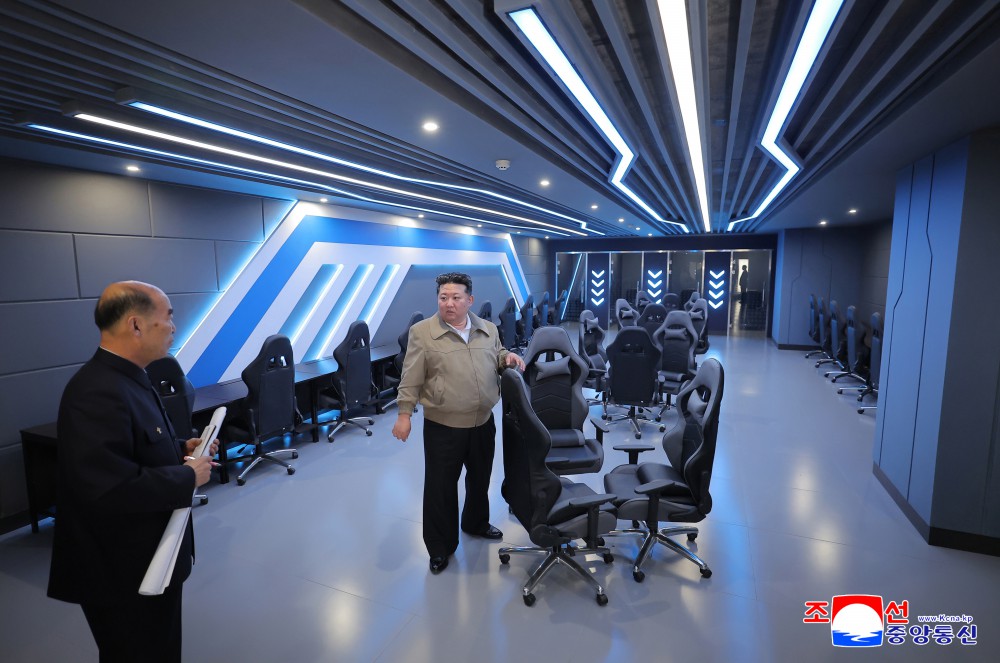Each month, NK TechLab will publish a review of three interesting or important articles from the month that provide a window into the use of technology in North Korea. This month, surveillance at a LAN café in Pyongyang, more radio broadcasts to North Korea are halted, and North Korean IT workers look beyond the tech industry.
Daily NK: N. Korea’s LAN gaming center offers entertainment under strict surveillance
Pyongyang’s Hwasong District is home to a new LAN gaming center that is open to the public, reports Daily NK. The center is open for eight hours a day and requires visitors to present an ID card to log their entry and exit and the computer they use. Monthly passes are also available.
The report talks about some of the surveillance installed on the computers: “Computers at the center can access Kwangmyong, North Korea’s national intranet, but outside internet access is blocked. The facility’s system automatically records all execution and access logs.”
“The center’s management room can monitor all screens in real-time, while staff conduct regular patrols. When they spot politically problematic statements or behavior, they immediately report to superiors,” it says.

Analysis: The security and monitoring systems in place at the gaming center are consistent with the type of monitoring seen in other locations where people have access to the internal intranet. By recording who is accessing what and when, it should be possible to trace any activity the authorities deem suspicious, but it also acts as a psychological deterrent against pushing the boundaries on what is permitted.
Last month, we highlighted a report that said authorities were cracking down on intranet usage after someone was caught with internal North Korean data sourced from the intranet on a memory card. It appears the North Korean authorities are happy to maintain public access to the intranet with stricter controls.
The Hwasong District is a massive new neighborhood in the northern part of the city that has emerged over the last few years as part of Kim Jong Un’s plan to add 50,000 apartments to the capital city over five years.
DW: South Korea halts anti-North radio broadcasts
The end of radio broadcasts to North Korea by South Korea’s Ministry of National Defense attracted the attention of Germany’s DW.
The Voice of Freedom radio station had broadcast outside information and music into North Korea since 1962 and was previously taken on and off the air in response to inter-Korean relations, it reported.
“The defense ministry suspended the Voice of Freedom broadcast as part of measures to ease military tensions with the North,” DW reported a ministry spokesperson as saying.
The same topic was also discussed in an article by Kang Dong Wan of Dong-A University on Daily NK. He said the end of broadcasting to North Korea “isn’t just a policy shift; it’s an abandonment of the state’s most fundamental duty and a clear violation of law.”
Analysis: The Voice of Freedom was one of the final South Korean broadcasts left on the air after the country’s intelligence service halted its radio and TV broadcasts earlier in the year. That came after the US government suspended programming of Voice of America and Radio Free Asia in Korean.
As a result, the number of hours of Korean language programming targeted at North Korea is down from 415 hours to just 65 hours per day. Much of that is broadcast by KBS Hanminjok Radio with a few private broadcasters making up the remaining hours.
The effects of this massive drop in the broadcasting hours are yet to be seen, but information gained from foreign radio and TV broadcasts is regularly quoted by escapees as a primary motivation for their escape from the country.
I wrote about the drop in broadcasting here in July.
Okta: North Korea’s IT Workers expand beyond US big tech
North Korean IT workers threaten nearly every industry that hires remote workers, according to a new report from computer security company Okta.
The company says IT workers are now targeting not just the IT sector but companies in the finance, healthcare, public administration, and professional services sectors in several countries. While the workers are mostly interested in gaining employment as a way to raise money, in some cases they can steal sensitive data, according to the report. Over a quarter of companies targeted were outside of the US.
To come up with the data, Okta says it tracked over 130 identities operated by facilitators and workers participating in the North Korean IT worker scheme. Those identities were linked to over 6,500 initial job interviews across more than 5,000 distinct companies up until mid-2025.
Analysis: The continued popularity of hiring remote coders, often to save money, and the continued success of North Korean IT workers to evade detection means this threat won’t stop any time soon.
The use of artificial intelligence to fool interviewers and create fake personas has proven difficult to detect by many companies. While many of the IT workers are just concerned with making money, high profile companies and sensitive industries need to be especially careful they are not inadvertently hiring North Koreans to guard against data loss or infiltration.

Leave a Reply
You must be logged in to post a comment.